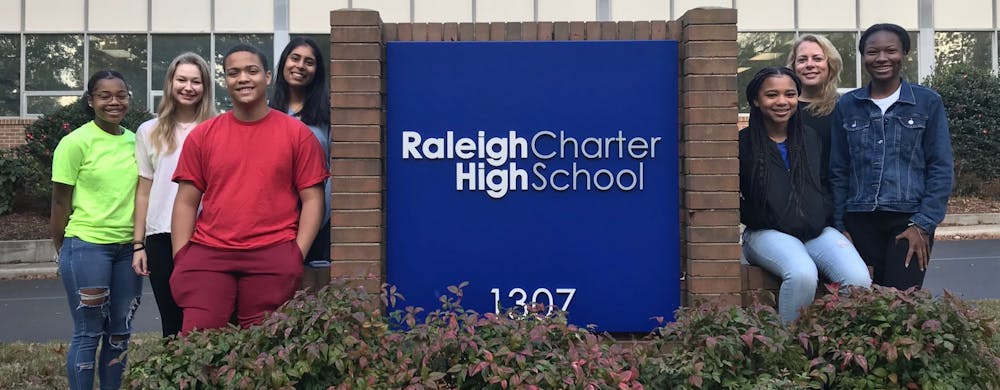A major show of support for the project came last December.
After the group gave a presentation on the memorial, the committee received an anonymous donation of $10,000, allowing them to formally launch the fund for the memorial with the North Carolina Community Foundation.
Allison Jemerson, a committee member, said the donation was a major encouragement for the group in making them feel supported in their efforts.
“It can feel like you’re the only person that really cares about this work,” Jemerson said. “But once you see there’s support from our school community, and just from our community in North Carolina, it’s really encouraging because we know that there’s actually people who are backing us.”
Many members said they’ve seen a growth in support for the project over the past summer, in light of national conversations surrounding systemic racism and police brutality.
As the movement gains traction in the school and local community, the committee remains involved in conversation with local architects, policy makers, historians and activists to decide what the memorial should look like, and where it should be placed.
Winter said some concerns among members include how to create something meaningful without being evocative or traumatic, and how to place the memorial in a significant location while ensuring people don’t view it passively.
However, she said all members agree they want the memorial to say the names of those who were lost across the state from lynching, as well as include appropriate historical context of all known victims in N.C.
In addition, members want to include an element that memorializes “unknown” victims, who may not have been recorded or identified by public databases, such as the student-driven project the Red Record.
Sammi Tucker, a committee member, said she hopes the memorial will prompt people in the community to realize how locally lynchings took place, and how that history still affects people today.
“Lynchings were not just something that happened to people in the ‘Deep South,’" Tucker said. "It happened here, in North Carolina."
Tucker said the memorial was important to her as a Black woman, as she believes the burden of the history of lynchings is often solely placed on Black Americans, while formal education tends to sweep the subject under the rug.
To get the day's news and headlines in your inbox each morning, sign up for our email newsletters.
“It’s very important for me to bring up these conversations, and to have other people bring up the conversations about my history and the brutal things that were done to my ancestors,” Tucker said.
She said she hopes the memorial helps people engage in knowledgable conversations about the history of lynching and how it's relevant to current events.
Jemerson said she believes naming the victims is an important element of acknowledging a history that is frequently overlooked, and offering a sense of resolution to those still living who were witnesses to this violence.
“I just want their descendants to have some type of closure, anything just to know that there's people who cared about them, even though we didn't know them, and who are working to try to have them remembered in some way," she said.
The group is still trying to reach a fundraising goal of $80,000 to $100,000 to help with construction and placement of the memorial. To donate to the project, visit the North Carolina Community Foundation fund.
@briandrosie
@DTHCityState | city@dailytarheel.com



